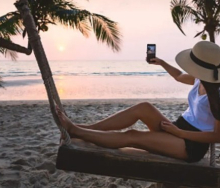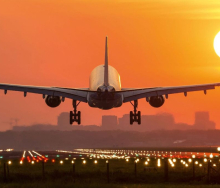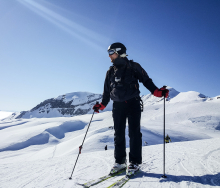Content may be king, but without optimised distribution, personalisation and commercialisation of content, it’s the king of wasted resources.
Brand vs Bot
The ability to attribute social media spend to enquiries and direct bookings is something many travel marketers continue to struggle with. In my limited experience of the travel industry, the majority of social media spend is not attributable directly to the commercialisation of marketing efforts. The fallback of ‘brand awareness’ is a fallacious façade all too easily hidden behind. Sure, there’s value in brand, but with the technology at our fingertips, there’s no excuse not to have a very clear return on social media investment.
Chatbots are not a new thing. Most of us have had some form of bot engagement or another. What is new, however, is the rapidly evolving technology behind chatbot capability, and the opening up of application programming interfaces (APIs) within the travel industry that these bots can leverage off. For example, Facebook’s Graph API allows developers to fully leverage the power of Facebook, and in the instance of chatbots, Messenger. With modern APIs, tech-savvy retail agents and tour operators can access and sell accommodation, tours and attractions in a single, AI-assisted conversation, cutting out the inefficiencies of traditional agency models.
Marketing, sales, and entertainment can now work together to build loyalty and drive sales through one seamless conversation, not three separate efforts. It’s time to build your branded bot.
Conversational Commerce
‘Chatting’ is second nature to us. It’s part of our daily lives. It’s easy, convenient, and everyone knows how to do it. Importantly, it’s optimised for mobile. 98% of our users interact with us on mobile. If you aren’t optimising for mobile, you’re going to fall behind. Cross-chat features between Facebook, Instagram and Messenger will take place, allowing businesses to engage seamlessly with users through chat-agnostic technologies.
Hermitage Travel Africa launched its first Messenger chatbot in the first week of August – a travel competition. To enter, users had to complete a travel survey via our chatbot. So far, we’ve had over
9 600 surveys completed. Just over 60% of those users have subscribed to receive travel-related specials delivered to their Facebook inboxes. The cost per acquisition? 37 cents per user.
Asked in the survey what their ideal post-lockdown holiday would be, 38% of these 9 600 respondents said a beach resort, and 26% said they’d opt for a private villa. Only 6% were keen to have a big city experience; 28% of respondents said they travelled at least once a year internationally for leisure; 93% said their first big holiday post-lockdown would be within South Africa, highlighting the importance of domestic travel in the upcoming months. 57% said they’d spend between R2 000 and R5 000 on a domestic weekend away with their partner; 9% said they’d be happy to spend over R5 000; 16% of users who disclosed their income earned over R20 000 per month. Date of birth, contact number and email address for each user were also captured by the bot. It looks like we’re going to launch an international survey with a high-end safari tour operator focused on inbound family travel.
Our chatbot launch has proved that it’s a low-cost strategy for agents to build up their travel database, chat to users, build trust, and commercialise. The loopback process of using the chats to feed back into dynamic targeting and ad-creation is another powerful layer of the technology. A targeted ad is the equivalent of an open email. A highly personalised ad is the equivalent of placing the user, with intent, on your booking platform.
By building on top of Facebook, tech-savvy travel companies can leverage a remarkably powerful platform to create new ways to distribute travel-related products, grow databases through engaging and entertaining chats, and automate the traditional booking process via chat, enabling customer support staff or travel planners to focus on more complex matters.
The capability is there, and I think we’ll soon see a lot more automation via chatbots as independent suppliers seek more control over direct bookings, and larger travel companies look to optimise return on marketing spend and maximise efficiency through human touch and tech hybrids.















